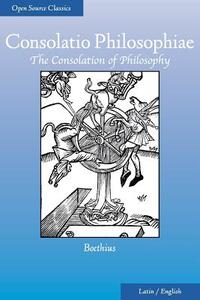You need to sign in or sign up before continuing.
Take a photo of a barcode or cover
challenging
hopeful
informative
reflective
reflective
slow-paced
challenging
dark
emotional
relaxing
slow-paced
challenging
informative
inspiring
mysterious
reflective
medium-paced
challenging
reflective
slow-paced
informative
inspiring
reflective
slow-paced
Trost der Philosophie wird am Ende sehr religiös, jedoch werden auch Dinge gesagt, wo ich zustimmen kann und irgendwo ist es verständlich was Boethius meint. Jedoch ziemlich langatmig und wahrscheinlich auch nicht mein Lieblingsphilosoph
challenging
hopeful
reflective
medium-paced
challenging
reflective
slow-paced
A really interesting read. Boethius is an excellent writer and philosopher who is tangling with pressing theological questions right before his unjust execution. I think it's important to read his conclusions in light of this and of his historical context: He's sort of a bridge figure between Christian Rome and Medieval Christendom, so his theology is heavily influenced by classical philosophy. His theological conclusions aren't always orthodox in the strictest sense. But I think it's helpful to take Boethius for who he is rather than fixate on who he is not. And in books IV and V especially, I think it's difficult to deny that God's sovereignty is primary for Boethius' understanding of the world. Those same books emphasize Boethius' simple humanity as he grapples with how God in his sovereignty could allow evil men to prosper and commit injustice.
Ultimately, we understand that Boethius *must* bring these questions to a resolution, because he is running out of time. I didn't find all of Boethius conclusions to be convincing (or ultimately comforting) due to his reliance on classical philosophy, but I did find him sympathetic in his searching.
Minor: Death, Grief
challenging
reflective
slow-paced
challenging
inspiring
reflective
slow-paced





